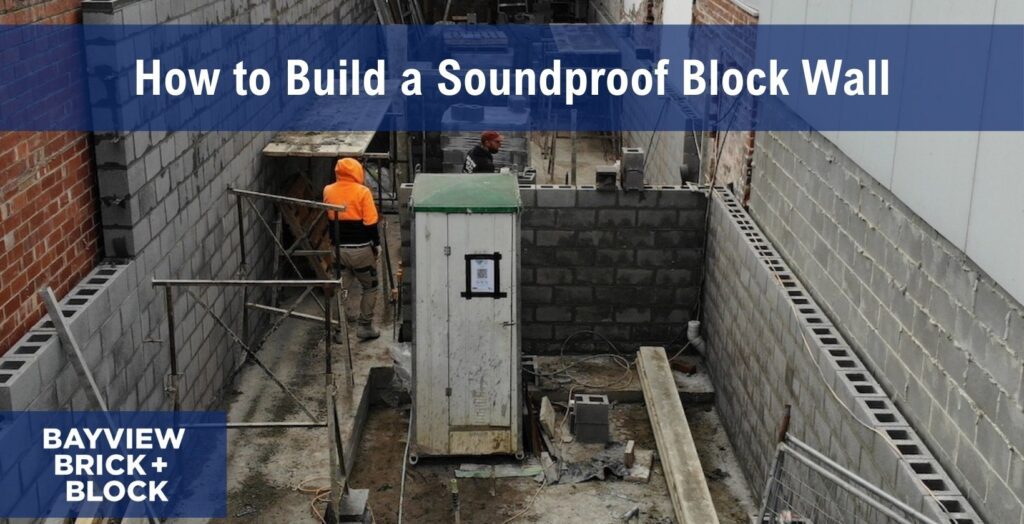You build a soundproof block wall by selecting the right materials and using proper construction techniques to minimise noise transfer. Dense blocks combined with precise laying methods create a solid barrier against sound. Choosing the appropriate mortar further enhances the wall’s ability to absorb and block noise.
This blog explores the best block types for reducing noise, explains how mortar choice impacts soundproofing, and compares methods for residential and commercial applications, helping you make informed decisions with insights from block layers.
Best Block Types for Noise Reduction
Reducing noise effectively starts with choosing the right block materials. Blocks designed for soundproofing have unique properties that absorb or deflect sound waves, creating a quieter environment. Understanding these options can help you build a structure that meets your specific needs. Below are the best types of blocks for noise reduction.
Concrete Masonry Blocks
Concrete masonry blocks are a popular choice for their density and durability. Their mass makes them highly effective at absorbing and deflecting sound waves. They also provide structural strength, making them ideal for long-lasting walls in both residential and commercial projects.
Aerated Autoclaved Concrete (AAC) Blocks
AAC blocks are lightweight yet excellent for noise reduction due to their porous structure. The air pockets within the blocks trap sound waves, reducing transmission through walls. They are also easier to handle and install, making them a versatile option for projects like a block fence for privacy.
Cavity Wall Blocks
Cavity wall blocks use a double-layered design with a gap in between to improve insulation. This gap acts as a buffer, significantly reducing sound transfer. They are especially suited for projects requiring maximum acoustic insulation in areas with high noise levels.
How Mortar Choice Affects Soundproofing
Mortar plays a critical role in the soundproofing performance of a block wall. Its composition determines how well the joints can block or absorb sound waves. A dense, properly mixed mortar creates tighter seals between blocks, reducing gaps that allow noise to pass through.
The choice of mortar also impacts the wall’s overall stability and acoustic insulation. Using specialised acoustic mortars can enhance sound absorption without compromising structural strength. Selecting the right mortar type can improve efficiency in blocklaying by ensuring smooth application and effective soundproofing in a single step.
Poorly mixed or low-quality mortar weakens both soundproofing and structural integrity. Cracks or voids in joints can become pathways for sound to travel, reducing the wall’s effectiveness. A well-chosen and properly applied mortar ensures the wall performs as intended, keeping unwanted noise at bay.
Comparing Soundproofing Methods for Residential and Commercial Use
Soundproofing needs differ significantly between residential and commercial projects. Homes typically require quieter spaces to reduce everyday noise from neighbours, traffic, or outdoor activities. In contrast, commercial buildings often need soundproofing to control noise in offices, retail spaces, or industrial environments, ensuring functionality and comfort.
The materials and methods used vary depending on the setting. Residential projects often rely on dense blocks or cavity walls to minimise noise transfer between rooms or properties. For commercial applications, reinforced masonry combined with acoustic insulation provides durability and superior noise reduction for larger, busier spaces.
Each method has its strengths depending on the project’s requirements. Residential projects prioritise cost-effectiveness and ease of installation, while commercial builds focus on long-term performance and compliance with stricter soundproofing standards. Understanding these differences helps builders select the best approach for creating quiet, functional spaces.

